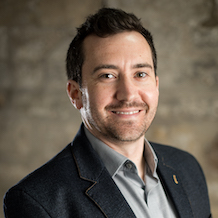Dr Nathan Wales
Senior Lecturer
Visit Dr Nathan Wales's profile on the York Research Database to:
- See a full list of publications
- Browse activities and projects
- Explore connections, collaborators, related work and more
Profile
Biography
Nathan received a BS in anthropology/sociology from Truman State University in 2005. His postgraduate training at the University of Connecticut was guided by the “four field approach” to anthropology, and included acting as a supervisor at archaeological field schools held in Armenia. After earning an MA in 2008, Nathan underwent training in molecular biology and later developed skills in ancient DNA analysis during extended visits to the Centre for GeoGenetics in Copenhagen, Denmark. His dissertation research, funded through a fellowship from the American-Scandinavian Foundation, explored the analysis of ancient DNA from archaeobotanical remains. Nathan was awarded a PhD in anthropology from the University of Connecticut in 2012. His focus on DNA from archaeological plant tissues was further developed during postdoctoral positions at the University of Copenhagen, the University of California, Berkeley, and Université Toulouse III - Paul Sabatier. In 2018 Nathan joined the Department of Archaeology at the University of York and is leading the ancient genetics group at BioArCh.
Departmental roles
ACCE Doctoral Training Partnership
ACCE representative for Archaeology (2019 - present)
School of Natural Sciences (NS)
Subject facilitator for Archaeology (2021 - present)
Pathway leader for Archaeology/Biology/Environment (ABE) (2021 - present)
Chair of NS Exceptional Circumstances Committee (2022 - present)
NS Departmental International Officer (2023 - present)
Chair of NS Teaching Committee (2023 - present)
Research
Overview
Nathan is an ancient DNA specialist and his work is centred on questions related to plant domestication and crop utilization. Through the analysis of DNA from archaeobotanical remains, he seeks to understand how past people changed wild plant species into the key crops that today feed billions of people. Nathan’s work has so far focused on three main species: maize, grapevine, and sunflower. Each plant represents a unique example of the tremendous impact humans can have on the morphology and genetic underpinnings of other organisms, and each case provides the opportunity to investigate regional histories. By tracking genetic changes in domesticated plants, it is possible to understand ancient diets, past farming practices, and the movement of people and their agricultural systems. As part of the goal of maximizing research potential from precious archaeological materials, Nathan has undertaken a number of experiments to optimize DNA methodologies for ancient seeds and other plant tissues. In addition to his primary research topics, Nathan has collaborated with other researchers to analyse DNA from ancient humans, extinct megafauna, and herbarium specimens.
Teaching
Undergraduate
First year
Third year
Postgraduate
Other teaching
Module convenor for School of Natural Sciences Interdisciplinary Project


